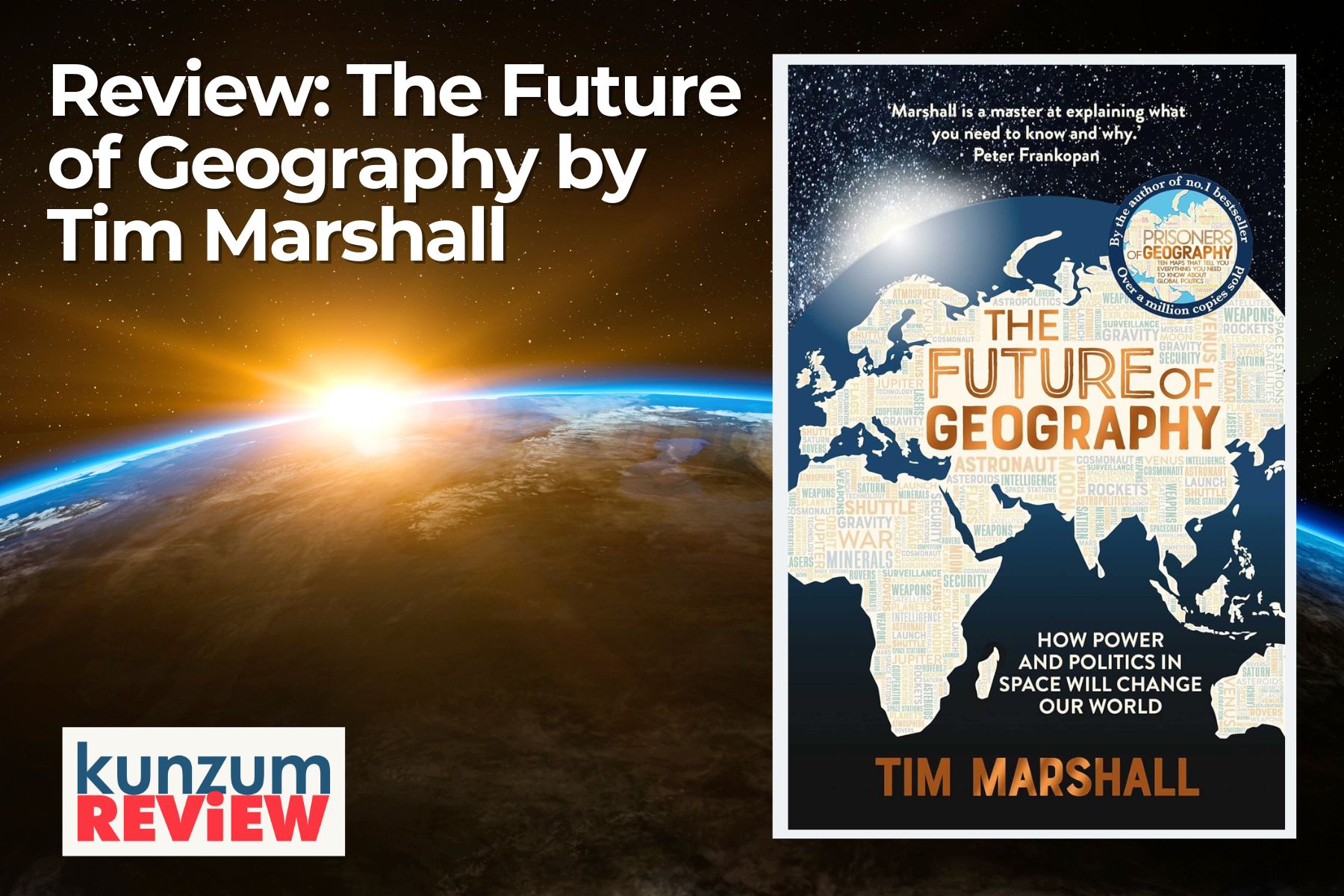
Continuing his series of books on Geography and its impact on human society, Tim Marshall’s third book, The Future of Geography takes us into the heady world of Space and the Space Race. While his first book – The Prisoners of Geography – delved into how geographic divisions or borders decided how a country behaved with its citizens and neighbours, the second book, The Power of Geography, dealt with how the peculiarities of a country’s geography gave it power over other countries within its region.
The third book takes off where the second ends – international conflict in space.
As he begins his treatise into Space and its explorations, he looks to the past and quotes the Russian scientist Tsiolkovsky, who said: “Earth is the cradle of humanity, but one cannot stay in the cradle forever.” Marshall argues that it was conflict that gave humanity the ability to reach for the stars and take its first faltering steps into space: “We first crossed the border with space less than a century ago. But it was conflict on Earth that finally got us there. The technology that took us to the heavens came from the arms race of the Cold War”.
In this new book, Marshall, a British foreign correspondent and former diplomatic editor of Sky News, talks about how humanity’s next goal is the final frontier of space and its unexplored geography.
In his own words, “there is indeed a geography to space and those two things are joined by politics, or ‘astropolitics’ as it’s now known”.
But what geography does space have, you ask. Marshall answers that question in the book and explains how space itself has a geography that comprises of a variety of things including gravitational corridors, strategic locations, prime ‘real estate’ such as geosynchronous orbits in which satellites are locked into position over the same territory on earth, ‘oceans’ of distance and ‘superhighways’ where a spacecraft can slingshot itself at higher speeds using a planet’s gravity.
Marshall’s exposition on space and the future that it holds for us, begins with the moon and how mankind first went to the moon and what motivated us to do so. He goes on to talk about the technologies that the three major players of the world – USA, Russia and China – have developed to explore space. At the same time, even as the Big Three continue to build their space programmes, smaller nations that can’t compete with them but want a say in what goes up into space and what comes down, are already aligning themselves into ‘space blocs’, thus bringing the element of ‘astropolitics’ into play.
Referring to the Outer Space Treaty of 1967, the Moon agreement of 1979 and the Artemis accords of 2020, Marshall concludes that, “Existing space laws are horribly out of date and too vague for current conditions”, and emphasises the need for strong laws to govern space exploration and to avoid any interstellar conflict.
Apart from the desire to move beyond the geographical boundaries of earth and its gravity, Marshall refers to the commercial and financial aspects of it: “It will not all be ‘noble future of humanity’ material. There’s money to be made in space and people are out to get it. The commercial opportunities are many. If space flight for ordinary people becomes the norm, then space hotels will not be far behind.”
But it’s not all that simple and straightforward. Marshall draws attention to how space is the next ‘war fighting domain’ and how the USA, China and Russia have their own versions of a ‘space force’, that provides war-fighting capabilities for their forces on land, sea and in the air. Even as the Big Three prepare for a possible showdown in space, other countries are also jumping into the fray and Marshall lists that in his book. From France’s proposal for ‘swarms of nano satellites to guard their satellites’ to India’s testing of an anti-satellite weapons system in 2019, nearly 12 years after China tested a similar system in 2007, Marshall covers it all.
He also cautions that humanity’s foray into space will not be one marked by unity. Instead, countries will head into space for the same reasons that they explored and conquered distant lands – for power, prestige and prosperity.
While being a fascinatingly insightful book about what the future holds in terms of space travel, and humans in space, Marshall’s The Future of Geography also draws attention to what could possibly go wrong if the prime movers of the space race are unable to work together in a cooperative and transparent manner.
While what happens in space may well be the result of international politics defined by the earth’s geography, what happens in space will also have reverse consequences on earth.
In Marshall’s words, “If we cannot find a way to move forward as one unified planet, there is an inevitable outcome: competition and possibly conflict played out in the new arena of space.”
One wonders then, what will space hold for us: A Star Trek full of adventures to hitherto unknown worlds, or Space Wars to overcome all other competition and be in charge of the new realm?
Pick up Tim Marshall’s The Future of Geography from any Kunzum store or WhatsApp +91.8800200280 to order. Buy the book(s) and the coffee’s on us.
